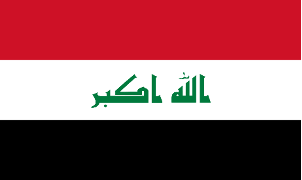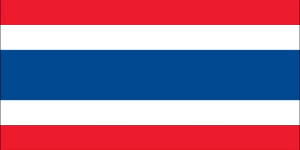December 5, 2020
Dear friends,
CANVAS is pleased to bring you another weekly report! This week covers ongoing protests in India, biological testing of soldiers in China, pressure on the Belarusian regime, and much more.
Ethiopian authorities claimed it had killed or captured rebel leaders in a mountainous region of the country bordering Eritrea, however the local rebel leaders in Tigray have countered that people are currently protesting against occupying soldiers that are looting civilian neighborhoods. The country has recently allowed humanitarian and aid workers access into the region, which many view as long-prevented and much-needed.
Mine workers in Peru from the Doe Run metallurgical plant have joined a group of striking farmworkers blocking major highways across the country in order to place pressure onto the country’s interim president, Francisco Sagasti.
In an effort to protest Indian Prime Minister Narenda Modi’s proposal to overhaul the state-run system in which many farms do business, many farmers have set their fields on fire. Knowing the implications for the air quality of cities like Delhi, these farmers burn their farms out of fear that produce prices will drop and corporations will take over their farms.
This week, Catholic-majority Argentina lit up with protests against a government-backed bill that would legalize abortion. This is the ninth abortion legalization bill to be introduced to the Argentine Parliament.
The global coronavirus death count lays around 1.5 million as the global case count has climbed to 64.91 million.
This week, the Wall Street Journal reported pharmaceutical company Pfizer was only able to roll out 50 million doses of a coronavirus vaccine, half the total number of doses they had projected to distribute by the end of the year. This caused its shares to drop nearly 2% by the end of the trading session last week.
Italy has imposed some of the strictest holiday rules in Europe, banning travel around the country in order to mitigate the spread of the coronavirus.

The San Isidro Movement launched protests in Havana to demand the release of a jailed group member and rapper Denis Solís. The group of artists, intellectuals and journalists are critical of the communist’s encroachment of civil liberties, in particular freedom of expression. Following a statement by 300 artists and the risky protests staged in front of the Ministry of Culture, the artists secured a meeting with Fernando Rojas, the vice minister of culture. However, since then, authorities dispersed the protesters base in Old Havana, in which 6 protesters were on hunger strike, and state media is defaming the movement as US-backed imperialism. The movement is gaining support and is drawing international attention.

The House of Representatives passed a bill to decriminalise marijuana, which is considered a milestone for social justice movements. Trump and Giuliani continue their campaign to delegitimize the US election. However, Barr announced that the Justice Department uncovered no significant voter fraud and it has been revealed that Guiliani is seeking a presidential pardon. Meanwhile, Biden is preparing for office by urging action on the economy and Covid-19. The November employment report reveals 3.9 million people in long-term unemployment and the slump is disproportionately affected people of colour. Congress is divided over the stimulus packages, however, a bi-partisan group has detailed a $908 billion plan to move forward.

US Spy Chief, John Ratcliffe, is claiming that China has conducted biological testing in the People’s Liberation Army in an effort to genetically enhance its soldiers. Furthermore, he accused China of economic espionage and claimed China poses the largest global threat to freedom, to which the Chinese retorted that the US is entrenched with a Cold-War mindset. Meanwhile, Sino-Australian relations continue to deteriorate after a fabricated photo was tweeted depicting an Australian soldier threatening a child; this has drawn international criticism and calls for renewed dialogue between the spatting states. In other news, 23 people were trapped in a coal mine in Chongqing, due to an accident involving carbon monoxide. Finally, President Xi Jinping made remarks regarding China’s improved rates of absolute poverty, while outlining more work ahead.

Prominent pro-democracy activist Joshua Wong was sentenced to 13 months in prison for violating the national security law by “organising and inciting others to join a 15-hour siege of police headquarters” last year. His fellow activists Agnes Chow Ting and Ivan Lam Long-ying were sentenced to 10 and 7 months in jail, respectively, on similar charges. The next day, pro-democracy media mogul Jimmy Lai was arrested on fraud charges. He has been denied bail and will be detained until his hearing in April after the court determined he would be a “flight risk.”

The intensity of Indonesia’s coronavirus outbreak has come to light following the death of a senior doctor and his wife on Wednesday due to the inability to find a ventilator to treat their severe COVID infections. This death has “raised alarm bells” in Indonesia, representing the intense overcrowding in Indonesian hospitals. This week, the Indonesian city of Medan was flooded due to torrential rain, forcing the evacuation of thousands of people and left over 2,700 homes flooded.

Flooding has hampered rescue efforts to save the 10-40 illegal miners trapped in the Ran Gold Mine in Bindura. The miner’s explosives hit a support pillar causing the shaft to collapse; so far only 6 have been rescued, 1 body has been retrieved, and the remaining are feared dead, trapped under water and rubble. Zimbabwe’s economy is in crisis; with high inflation and unemployment rates, exacerbated by Covid-19 lockdowns, Zimbabweans are increasingly turning to the dangerous trade of illegal gold mining. In other news, hundreds are stuck at border posts due to a lack of sufficient Covid-19 test certificates and other documentation, following the reopening of borders. At the Beitbridge border post, 622 people were refused entry in a single day, consequently, many families and traders are struggling to get home.
Flooding has hampered rescue efforts to save the 10-40 illegal miners trapped in the Ran Gold Mine in Bindura. The miner’s explosives hit a support pillar causing the shaft to collapse; so far only 6 have been rescued, 1 body has been retrieved, and the remaining are feared dead, trapped under water and rubble. Zimbabwe’s economy is in crisis; with high inflation and unemployment rates, exacerbated by Covid-19 lockdowns, Zimbabweans are increasingly turning to the dangerous trade of illegal gold mining. In other news, hundreds are stuck at border posts due to a lack of sufficient Covid-19 test certificates and other documentation, following the reopening of borders. At the Beitbridge border post, 622 people were refused entry in a single day, consequently, many families and traders are struggling to get home.

The contested regime of President Lukashenko faced new sources of pressure from abroad this week. On Wednesday, Russian President Putin urged Lukashenko and the opposition to hold talks intended to resolve the current unrest. Soon after, the UN convened to review an independent report created by 16 OCSE countries that contained calls to “cancel the results of the elections of August 9…release political prisoners, ensure the safety of journalists, and refrain from limiting access to [the] internet.” The Belarusian opposition has simultaneously launched a lobbying effort to convince state prosecutors across Europe to investigate allegations that Belarus’ security forces have tortured detainees. In line with this, opposition leader Svetlana Tikhanovskaya announced this week that the movement planned to compile a “book of crimes” committed by the police during the past several months of protests.

The U.S. recalled more than half of its diplomats from its embassy in Baghdad this week as tensions between the superpower and Iran rise. Unrest within Iraq itself continues. To the north, hundreds of government employees protested yet another delay in wages that were due to them two months ago. In Baghdad, similar numbers of university graduates have demonstrated against the lack of employment opportunities for their demographic. In the southern city of Nasriyah, thousands participated in the funeral march of a protester who died in clashes earlier in the week. Eight people have been killed in Nasriyah, along with several dozen injured, since the unrest began.

Five people are facing charges of violating the Thai lese majeste law, including human rights lawyers and protest leaders. They are expected to report to the police by December 7th. Protest leaders see this as a sign: the monarchy is unwilling to listen to the people and feels seriously threatened by the ongoing anti-government pro-democracy movement. In other news, Thai king Maha Vajiralongkorn issued thousands of pardons this week in honor of his father’s birthday on Saturday. Among those being pardoned are political opponents, including those from the red-shirt protests of 2006.

Iranians took to the social media site Twitter this week in an outpouring of support for Vahid and Habib Afkari, recently arrested brothers of a professional Iranian wrestler that was hanged last year for speaking out against the government. Vahid and Habib were imprisoned for their involvement in demonstrations protesting against the regime in 2018. This week, Iran has rejected President-Elect Joe Biden’s terms for reconstituting a nuclear deal between the two countries. Iran’s foreign minister, Javas Zarif, has said that the US must strictly comply with their end of the 2015 nuclear programme before Iran would consider having talks with the global power. This comes amid a breach in treaty between Iran and multiple world powers that dictates the country should only have access to first-generation IR-1 centrifuges. Iran has told the International Atomic Energy Agency, a UN watchdog organization, that it has installed three advanced IR-2m machines in an underground bomb-resistant location in Natanz.

A two-year report published by the Inter-American Commission for Human Rights (IACHR) details the human rights abuses against political protesters following April 2018. The testimonies of 266 people report arbitrary detention, dire prison conditions and (sexual) violence against political prisoners. The abuse was carried out by the National Police, however, parapolice and armed civilian groups also engaged in excessive violence. Meanwhile, Nicaragua continues to suffer the aftermath of Hurricanes Eta and Iota. The damages are set to contract the economy by 6%, and as an agriculture-dependent state, the risk of future extreme weather looms.